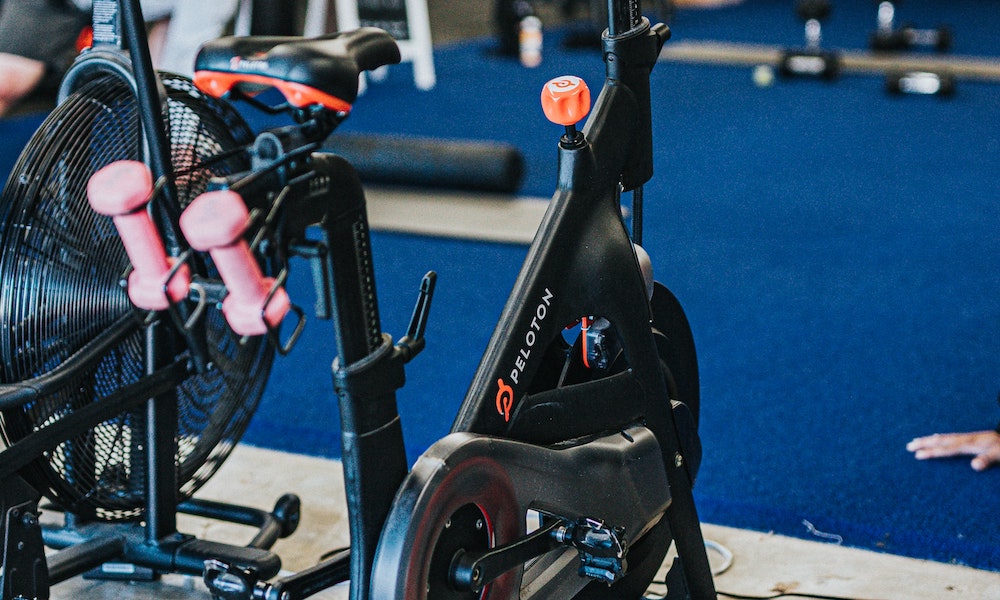Will Apple Buy Peloton?
 Credit: Andrew Valdivia / Unsplash
Credit: Andrew Valdivia / Unsplash
Toggle Dark Mode
So far, Apple seems to be content to stay in the software and video production side of the fitness business, but that doesn’t mean that it may not contemplate an expansion if the right opportunity comes along.
This is precisely the idea that’s being floated by the folks over at The Information, which believes that Apple could be preparing to pick up beleaguered fitness company Peloton.
Once famous for its high-end connected exercise bikes, it’s been languishing in recent months — a situation that at least some analysts attribute directly to the debut of Apple’s Fitness+ service.
Of course, it doesn’t help that the other tech giants are building their own health platforms too, but Apple is still way ahead of the competition in this area, thanks to the Apple Watch, and the addition of Fitness+ and its tight integration with the rest of Apple’s Health and Fitness ecosystem has been a game-changer for many folks.
Most importantly, it’s hard for a company like Peloton to compete on price when it comes to the kind of services that it clearly relies on to keep its business going.
While Peloton’s $1,500+ bikes and treadmills are far from inexpensive, it turns out that selling expensive hardware was never the company’s main goal. As analyst Neil Cybart wrote last year:
At its peak, Peloton’s $50 billion market capitalization wasn’t about selling high-margin bikes. Rather, it was about the company successfully getting tens of millions of people to pay $15 to $20 per month to be part of a platform offering everything from fitness equipment and exercise classes to health monitoring and coaching.Neil Cybart
Unfortunately, just as Peloton was trying to pivot into a health platform company, Apple came along with Fitness+, delivering a series of workout programs that could be undertaken at home with minimal equipment. No $1,500 exercise bikes required.
Sleek marketing that involved everyone putting dangerous and bulky workout equipment anywhere in the home is increasingly looking off. The future does not include the masses placing fitness bikes and treadmills in kitchens, kids rooms, and dining rooms.Neil Cybart
The result is that Peloton has been rapidly losing traction in the fitness market, as more and more workout enthusiasts embrace Apple Fitness+ — even many of those that already have Peloton’s bikes and treadmills in their homes.
It also certainly doesn’t help that the pricing of Peloton’s digital exercise plans are much harder to swallow. After already ponying up thousands of dollars for high-end exercise equipment, the company then expects customers to pay $13/month — $3/month more than Apple charges for Apple Fitness+ by itself, which requires only that users have a considerably more affordable (and useful) Apple Watch.
So, needless to say, Peloton has been in dire straits for months now, and while it’s tried to blame Apple’s new privacy rules for its loss of subscribers, it’s starting to sound as if it’s grasping at straws.
Ripe for a Takeover
This week, CNBC reported that Peloton has temporarily halted production of all of its connected fitness products due to waning consumer demand and cost overruns.
CNBC managed to get its hands on some internal documents that show that it’s already shut down production of its more expensive Bike+ in December, and now it’s planning to put everything else on hold until at least the end of March. The Bike+ won’t go back into production until June.
A confidential presentation from earlier this month had company representatives saying that demand for its connected fitness equipment has fallen off significantly around the world. It points to shoppers’ price sensitivity and “amplified competitor activity,” as the reasons for this.
Part of the problem, CNBC notes, is that Peloton overestimated what the demand for its products would be in the long term. The global health pandemic naturally created a demand bubble, with many folks stuck at home looking for ways to stay fit. It’s not surprising that’s diminished, but it’s also left Peloton with thousands of cycles and treadmills sitting unsold in warehouses, so there’s obviously no point in the company continuing to produce even more.
Still, investors aren’t optimistic, and Peloton’s stock plunged 24 percent after pre-announcing its upcoming financial results yesterday. CNBC reports that over $40 billion has been shaved off its market cap over the last year, and the shares are now trading at 85 percent of what they were worth at this time last year.
Peloton’s current state makes it ripe for an acquisition, and Martin Peers over at The Information thinks that Apple is in a position to be the most likely suitor, thanks to its deep pockets and closely aligned health and fitness goals.
If Peloton is to have a future, it would be better off as part of a bigger, more diversified company. Apple is an ideal candidate to take on that project. It has the Fitness+ subscription service for classes, and it markets the Apple Watch as a device that can help with jogging and other exercise activities. It could close Peloton’s stores and sell the equipment through its own stores. And hey, after today, Peloton’s market capitalization is down to $7.9 billion. Cook could pay for that by dipping into the change jar in his kitchen.Martin Peers, The Information
Of course, that appears to be entirely speculative on Peers’ part, although MacRumors notes that other market observers are starting to warm up to the idea as well.
Will Apple Buy Peloton? | Our Take
The biggest question, however, is whether this aligns with Apple’s strategic objectives. While there’s been some evidence that Apple is pursuing health-related hardware accessories, that’s still a far cry from getting into expensive fitness hardware like exercise bikes and treadmills — devices that would sell in the same price range as iPads and MacBooks.
Apple very rarely shows any interest in acquiring companies that manufacture hardware products. In fact, its multi-billion dollar acquisition of Beats in 2014 is about the only time in recent history that it’s picked up a company and continued to market its product lineup.
Even then, however, getting its hands on Beats was more about using the connections and expertise of Jimmy Iovine and Dr. Dre to launch Apple Music. Beats’ headphones division was simply a fringe benefit.
Apple also acquired Beddit in 2017, and although it continued to sell the eponymous sleep tracker in its retail stores for nearly five years, it never rebranded it, nor did it add any significant upgrades, and early this month it quietly disappeared from the Apple Store entirely.
While there are rumours that Apple is using Beddit’s expertise to create bigger and better products, there’s little evidence beyond patent applications that show solid plans. For now, it looks like buying Beddit was more about improving the Apple Watch than anything else.
Of course, it’s also possible that Apple may have a similar use for Peloton — gaining its expertise and perhaps even its customer base, but even that seems like a bit of a stretch. There’s no reason to believe Apple is struggling to attract subscribers to Fitness+, and the program has already been expanding rapidly. Further, unlike Beats and Beddit, Peloton doesn’t appear to have any industry connections, nor has it come up with any particular innovations in design or engineering, so It’s hard to see exactly what Peloton might bring to the table.








